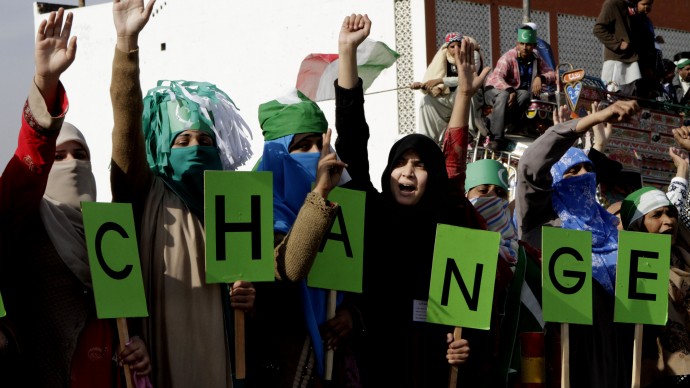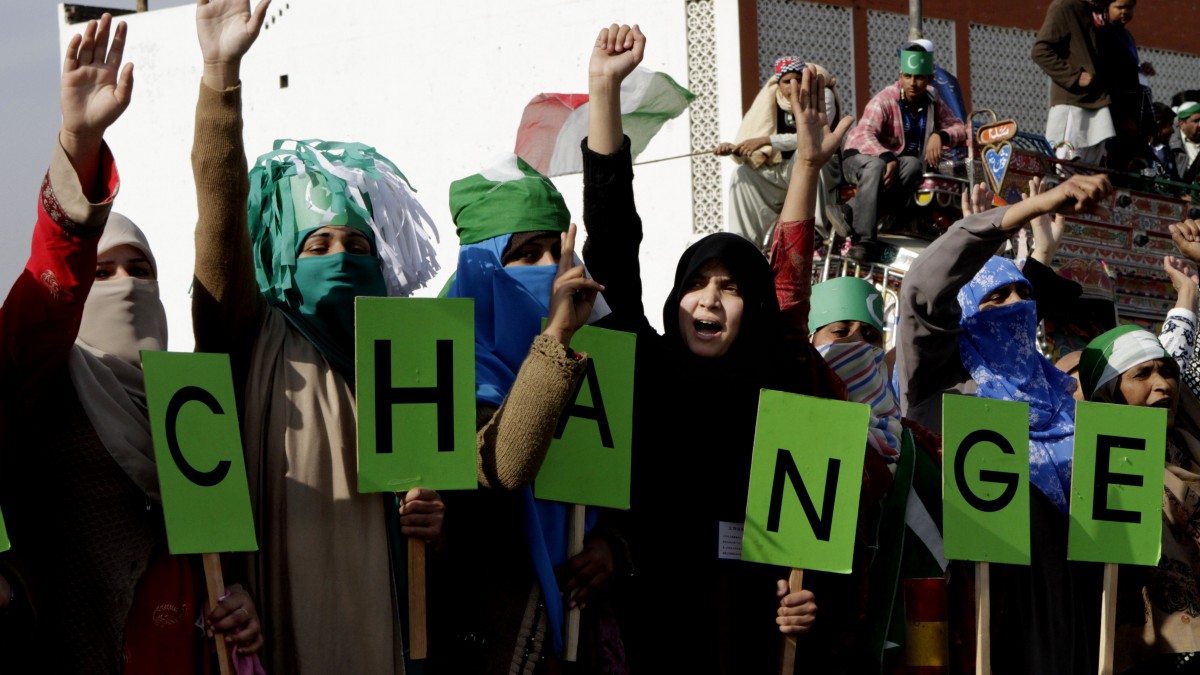
(NAMIBIA) MintPress – On Jan. 1, 18 countries took up seats on the U.N. Human Rights Council, pledging to “uphold the highest standards in the promotion and protection of human rights” — a promise that many rights groups are cautious to believe based on the poor human rights records of several elected countries.
The council’s founding resolution (60/251) states that the election of new members “shall take into account the contribution of candidates to the promotion and protection of human rights and their voluntary pledges and commitments thereto.”
Based on assessments of the domestic human rights standards of the candidate countries and their voting records on U.N. human rights resolution, independent watchdog organization Freedom House found that one-third of candidates in the 2012 elections failed to meet the United Nations’ own criteria for election to the Human Rights Council.
Freedom House does not recommend seven of the 18 elected countries — Ivory Coast, Ethiopia, Gabon, Kazakhstan, Pakistan, the United Arab Emirates and Venezuela — for council membership. Additionally, three countries — Brazil, Kenya and Sierra Leone — are considered questionable members based on their qualifications.
Mary McGuire, senior communications manager at Freedom House, sees two major impacts that these unqualified members can have on the effectiveness of the council. “First, most rights-abusing countries conveniently interpret the council’s mandate as solely that of providing a venue for dialogue on human rights issues, rather than a venue to address the abuses of specific countries.”
According to McGuire, this interpretation allows countries to object on principle to any resolutions or actions against individual countries, thereby pushing their own domestic records away from the hot seat.
Second, McGuire says unqualified members generally water down the language of resolutions on important human rights issues or prevent others from being passed. “Combined, these have the effect of minimizing the ability of the council to be a leader in effectively addressing global human rights challenges,” McGuire told MintPress.
Setbacks to fair elections
While the UNHRC charter mandates that members uphold the highest standard of human rights and that the election of new members shall take into account the candidates’ history of promotion and protection of human rights, McGuire explains the responsibility falls on member states “to prevent the election of members that violate these principles or to remove those that become violators while they are sitting members.”
Since seats on the council are allotted by regional group, it is suggested that the best way to avoid the election of unqualified members is for each region to run a competitive slate in UNHRC elections. “In most cases, when competitive slates are run, the country with the worst human rights record loses,” says McGuire.
Only the Western Europe and Other Group (WEOG) ran a competitive election in 2012 by putting forward more candidates than the number of seats available. Germany, Greece, Ireland, Sweden and the United States competed for three spots that were won by Germany, Ireland and the U.S.
The remaining regions all elected members in non-competitive, clean-slate elections as follows: Ivory Coast, Ethiopia, Gabon, Kenya and Sierra Leone from the Africa Group; Japan, Kazakhstan, Pakistan, South Korea and the United Arab Emirates (UAE) from the Asia Group; Estonia and Montenegro from the Eastern European Group; and Argentina, Brazil and Venezuela from the Latin America and Caribbean Group.
“To call the vote in the General Assembly an ‘election’ gives this process way too much credit,” Peggy Hicks, global advocacy director at Human Rights Watch said in response to elections last November. “Until there is real competition for seats in the Human Rights Council, its membership standards will remain more rhetoric than reality.”
Hassan Shire, executive director of the East and Horn of Africa Human Rights Defenders Project (EHAHRDP) told HRW, “Year in and year out, the African Group’s rotation system has virtually guaranteed the election of countries like Ethiopia that are serious human rights violators.”
Shire believes,“Injecting a healthy dose of competition into the elections would make for a stronger membership and a more effective Human Rights Council.”
According to HRW, “By using a rotation system that virtually guarantees seats to countries whether or not they meet membership standards, the African Group has effectively rejected the principle of competitive elections.” A news release by the organization said, “Countries with stronger human rights records in Africa have been unwilling to challenge the African Group’s standing practice of putting forward ‘closed’ slates.”
Yet, the African Group is not the only region guilty of running “clean slates” in U.N. elections. Whether for vote trading, deals within regional blocks or other unstated reasons, countries from all regions of the world (including the United States and Europe) have engaged in such elections in the past.
Particularly in terms of UNHRC elections, McGuire projects the substantial costs, both financial and political, deter most governments from running against candidates in regions like Africa and Latin America.
Members of the council are not allowed to serve more than two consecutive three-year terms before they must cycle off for at least one year. While the WEOG group has plenty of qualified candidates to fill these rotations, other groups have significantly fewer qualified countries to put forward for larger seat quotas (WEOG is allotted seven seats while Asia and Africa are each allotted 13).
Additionally, McGuire explains that the cost of maintaining a permanent mission in Geneva is prohibitively expensive, which makes candidacy unlikely for many smaller, qualified countries. “Given the seats allotted to regional groups, it is unlikely that the council will be stacked with free and liberal democracies unless there is a significant overhaul of the body,” says McGuire.
Looking forward in 2013
Rights groups agree more needs to be done in 2013 to discourage human rights abusers from running for seats on the council. Fourteen seats will be up for elections in 2013, including four in Africa and another four in Asia.
In the past, pressure from human rights organizations have successfully ended the candidacies of Belarus (2007), Sri Lanka (2008) and Azerbaijan (2009) in UNHRC elections. Iran (2010) and Syria (2011) also withdrew their candidacies under pressure from outside organizations.
More pressure is needed from both human rights groups as well as from strong democracies to discourage human rights abusing countries from running for election. As advocacy organization Amnesty International states, preventing the election of unqualified candidates to the council requires U.N. members to vote only for those candidates that meet the “highest standards” of human rights “even if, in some instances, this means leaving the ballot blank.”
In the history of the UNHRC, no country running unopposed has ever failed to garner the required votes for election onto the council, including countries such as Cuba, Libya and Saudi Arabia.
“Despite its membership, the council has made great strides in the past couple of years,” McGuire told MintPress. “Much of this can be attributed to the active membership of the United States and other WEOG members as well as increased participation by emerging democracies in Latin America.”
The United States, which was elected for a second term this year, has taken on a strong role in promoting sanctions against what are considered some of the worst human rights abusing countries and ensuring that wording in human rights resolutions is strong.
“If democracies maintain this level of commitment and devote resources to encouraging nascent democracies to break from regional blocs to vote positively on important issues, the council can continue to improve,” says McGuire.
Russia, China and Cuba, three influential rights abusing members, cycled off the council this year, leaving the door open for other countries to step up their influence. According to McGuire, “If the improvements over the past year are a representation of what is to come, we [Freedom House] are cautiously optimistic that the council will continue to make forward strides in 2013.”


